Conflict Management and Stabilisation in Al-Hol and Roj Camp
Building security and community cohesion amidst displacement
Syria
2020-2025
German Federal Foreign Office
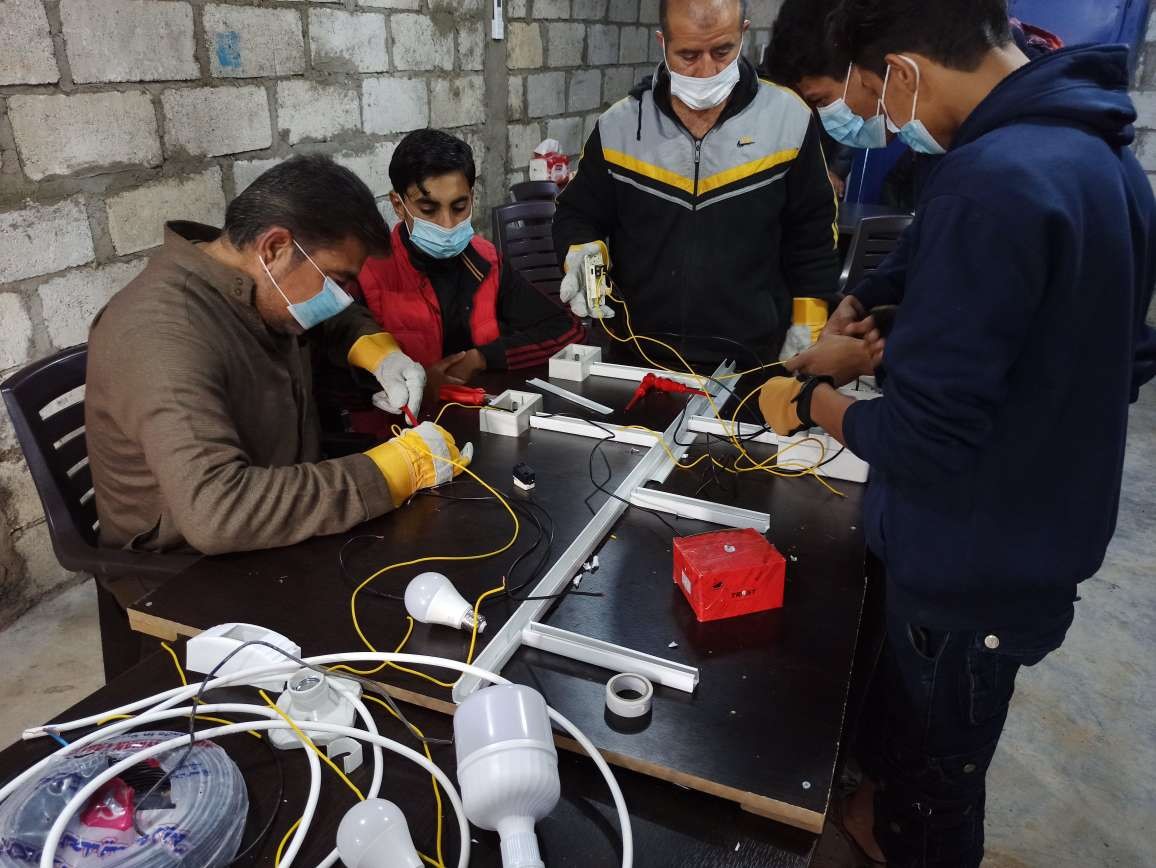
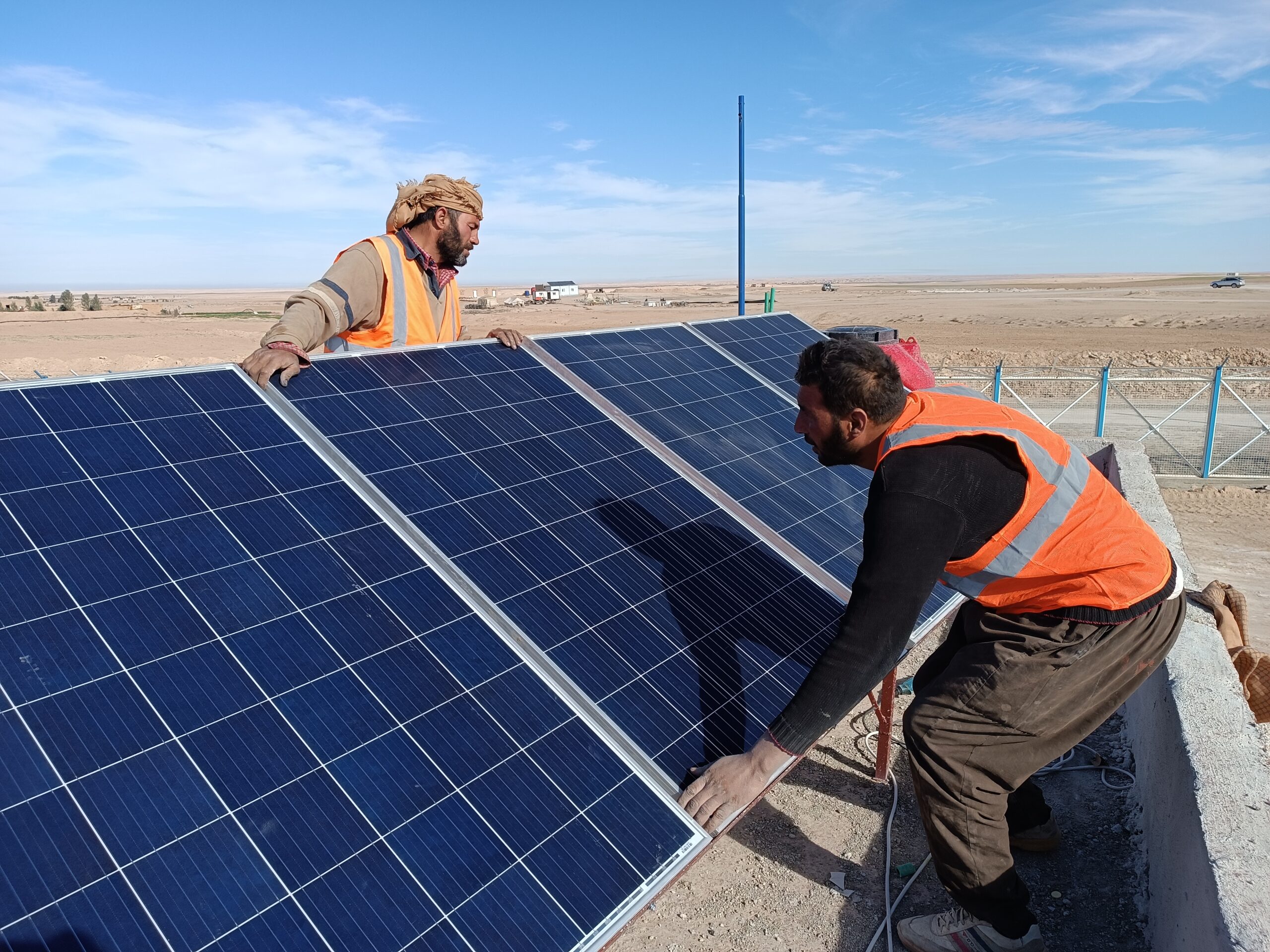
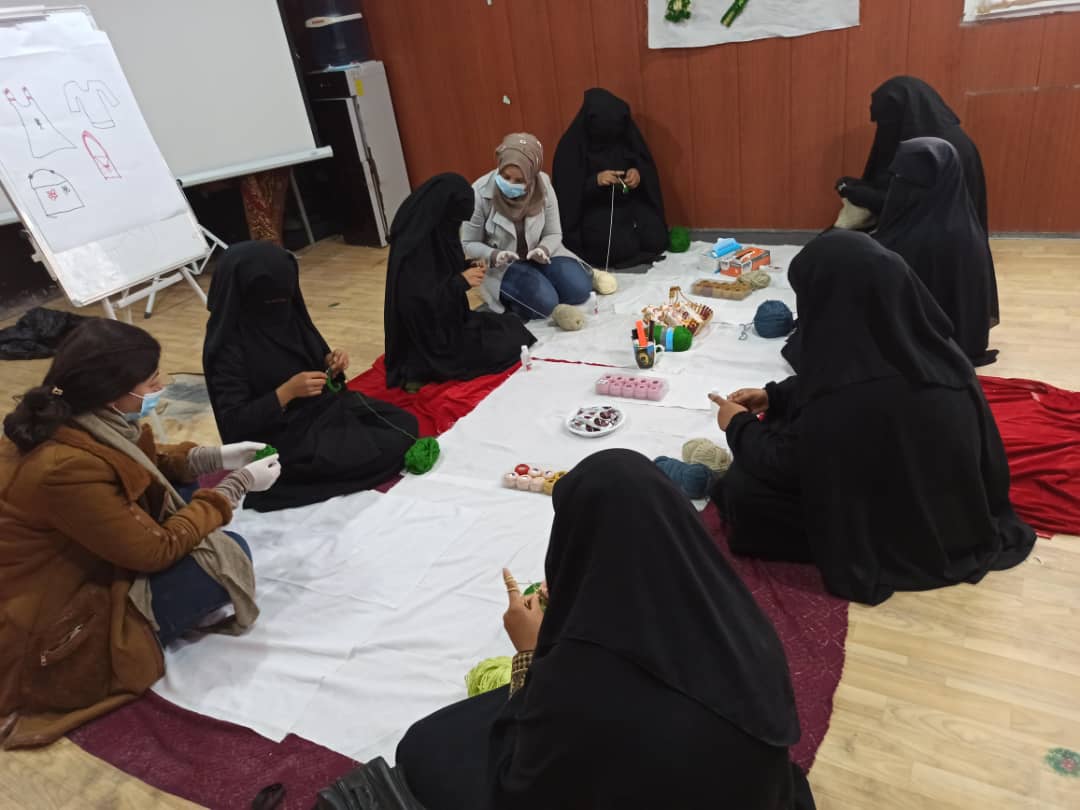
Promoting Social Cohesion and Community Mobilization
Al-Hol and Roj camps in northeast Syria house internally displaced people and refugees from different backgrounds and nationalities. This diversity can be a source of tension between residents. In response to these challenges, we work with camp leaders, councils, and committees to design activities and awareness-raising sessions to bring people together, with a particular focus on engaging women, youth, older people, and persons with disabilities.

Activities, such as tailoring, weaving, and crafts offer a starting point for participation. At the end of the sessions, women and youth display their products at camp-wide exhibitions. Vocational trainings are offered to complement community activities including courses for men and women in tailoring, electrical repair, plumbing, and carpentry.
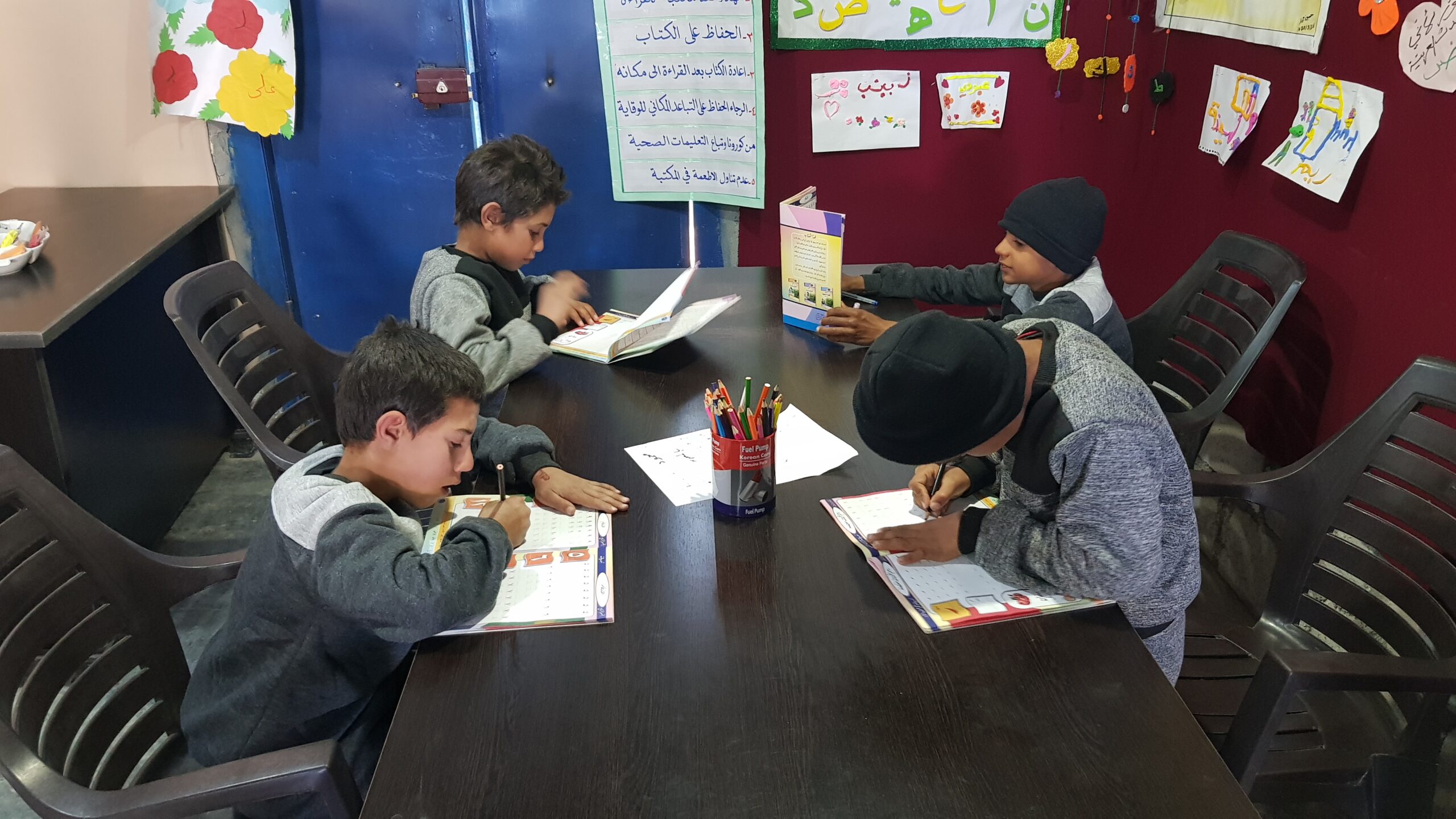
The libraries constructed by Blumont have become critical to the community’s social infrastructure, providing a meeting space for various groups. Informal sessions for youth on reading, writing, language, mathematics, arts, and more provide further opportunity for engagement. Literacy programs are further held for caregivers to encourage reading and continued learning at home.
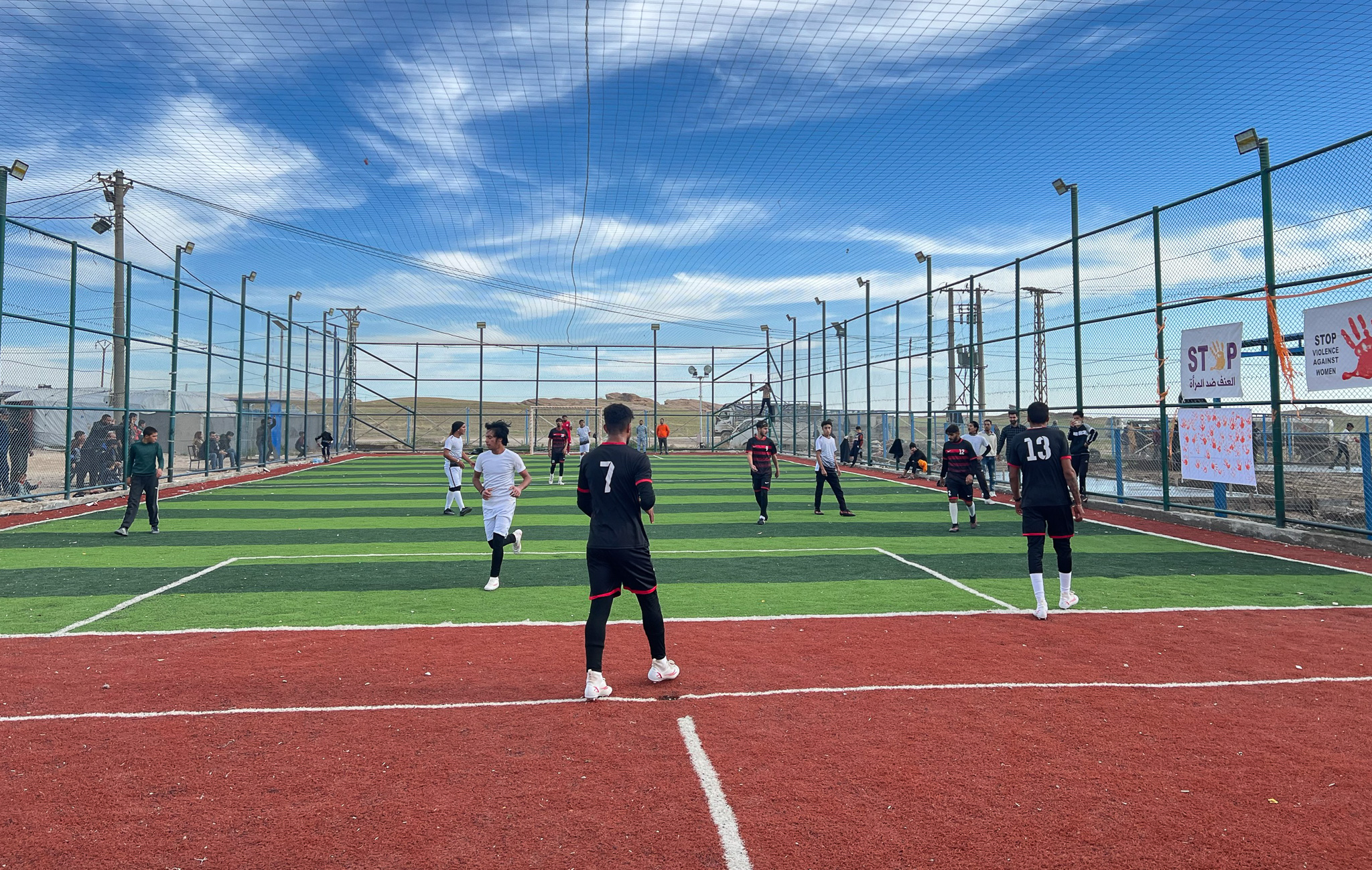
Focusing on Youth-Led Conflict Prevention
With input from community focus groups and discussions, we develop and pilot practical youth-led initiatives to foster understanding across cultural backgrounds and reduce violence. Outdoor activities, including sports, and indoor activities, held at our newly constructed or rehabilitated community centers, provide opportunities for cooperation and connection.
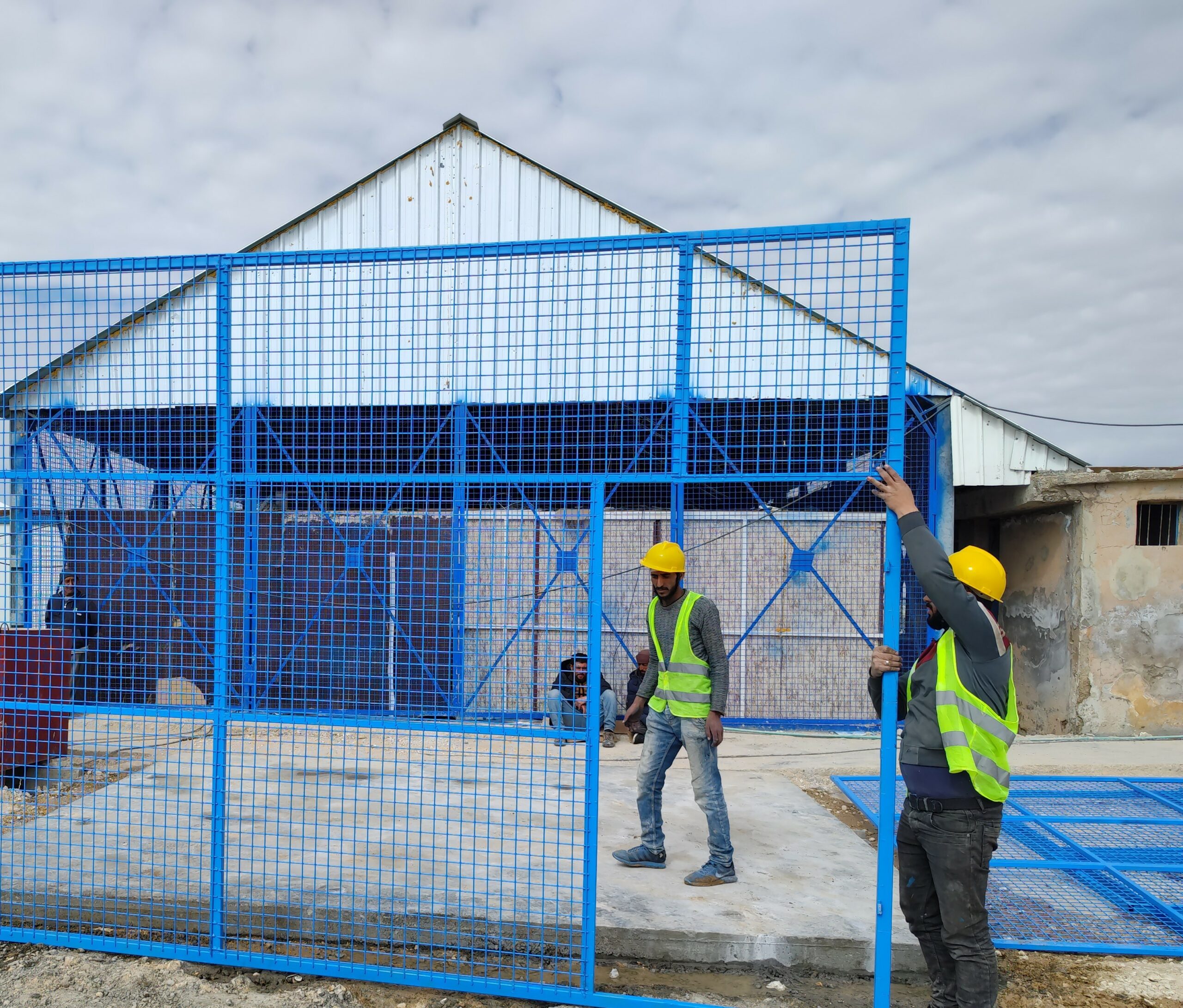
Improving Camp Safety and Infrastructure
Enhancing the infrastructure of the Al-Hol and Roj camps is essential to improving the safety and well-being of their residents. Efforts to improve living conditions and security include the construction of private kitchen and WASH facilities for each household, storage and warehouse spaces, and an advanced water and sewage infrastructure systems. To enhance security, we installed protective fencing and solar lighting systems. Our team conducted hydrological studies to inform the water system planning and implementation while ensuring environmental sustainability.
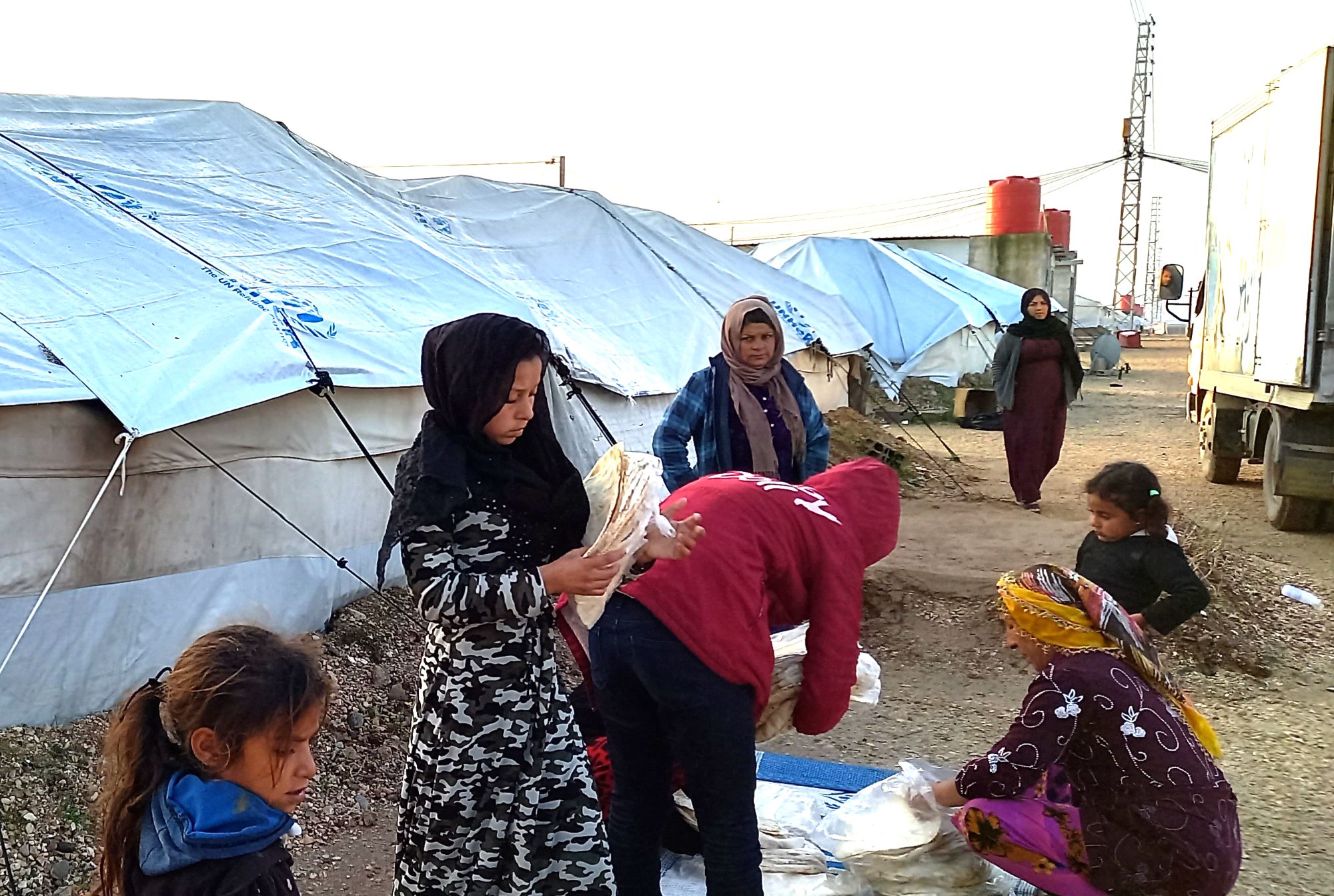
Improving Food Security
In 2022-2023, we provided local bakeries with high-quality flour to make fresh bread to feed the vulnerable communities we work in. Teams distributed the bread every day to 100,000 camp residents at no cost and sold it at a discounted price at distribution points in host communities, reaching an additional 295,000 people.
Adapting to Meet Community Needs
Amidst a dynamic security environment and evolving challenges, including the COVID-19 pandemic in 2020, our teams have worked to identify and meet the community’s shifting needs. To mitigate the spread of COVID-19, teams adapted distribution methods and provided hygiene kits to reduce exposure risks, while also providing regular community updates to reduce the effects of misinformation. In other situations, teams have provided heaters, fuel, fire extinguishers, jerry cans, and other items essential to keeping residents safe and improving their living conditions.



